Fall 2022 Issue
We LOVE to catch up with our alumni. Whether you attended Stockton last year or a few decades ago, we love hearing from our alumni and your life after graduation.
Ashley Viola '20
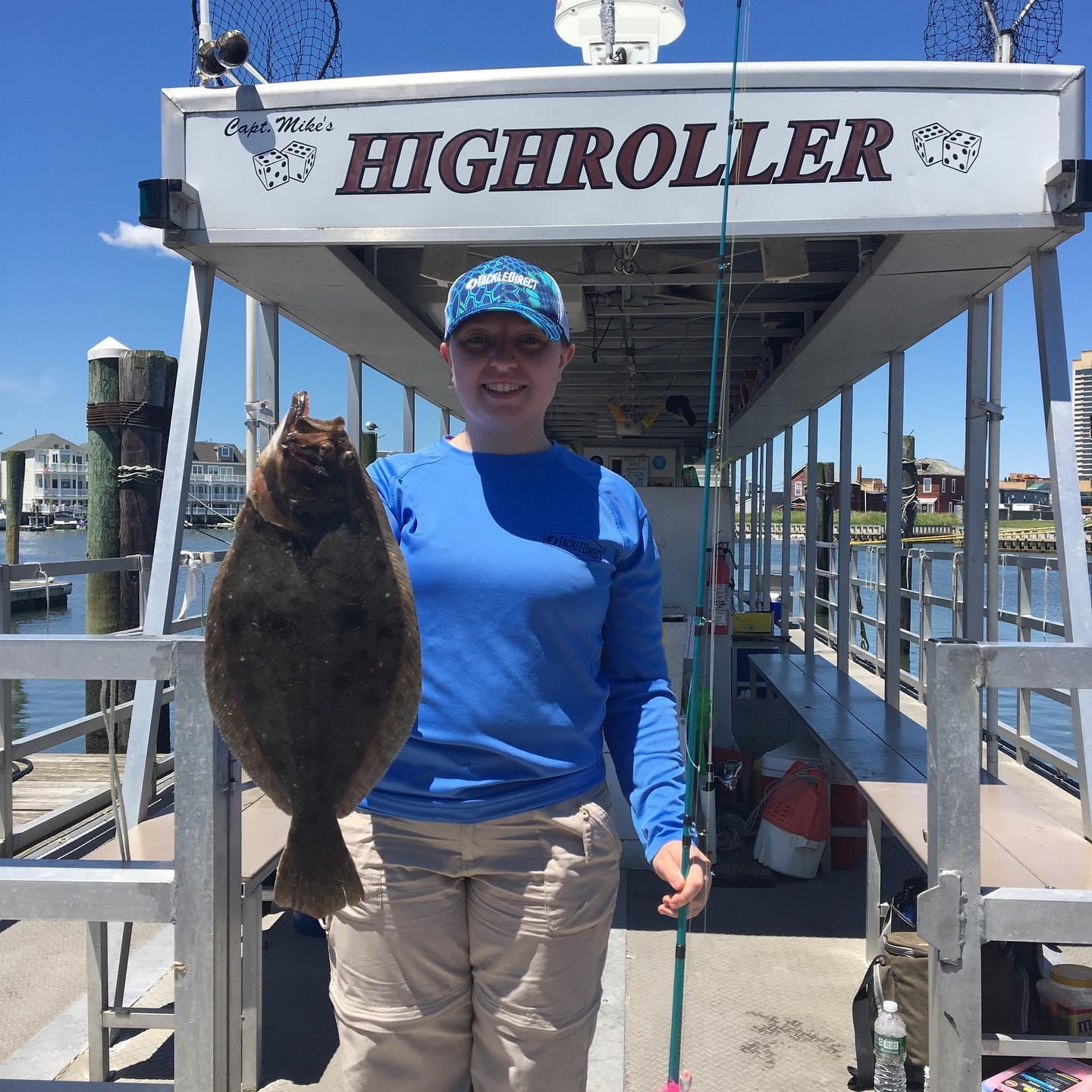
B.S. Biology, Minor in Chemistry
Master's of Data Science and Strategic Analytics student
Why did you choose Stockton?
I remember being an eager high school student, trying to find the perfect school to
begin my next chapter. After researching multiple universities, I decided to go to
Stockton’s open house. They had so many clubs and programs to offer ranging from the
Fishing Club to the Biology Club. I wanted a college where I could not only learn,
but make connections with peers that share the same interests. During the tour, we
were brought to the USC where I could see myself sitting at one of those desks and
studying science. The professors spoke about the multiple biology and chemistry courses
and I knew this school would provide me with the education I needed to thrive in the
science and medical field. From when I was very young, I was often hospitalized with
illness. I knew I wanted to help sick children like myself get better and give them
the opportunities I now have to live a great life.
What about the degree program made it unique?
The professors in the NAMS department really wanted every student to succeed and learn,
not just get a passing grade. They didn’t just see students as another number, but
as people who were willing to learn and be leaders and professionals for our future.
Specifically, Dr. Adam Aguiar had the most impact on my time at Stockton Univeristy.
He was my professor for both Saltwater Fishing and Ecology, and Cells and Molecules.
How did Stockton prepare you for the next chapter in your life? (Example: research,
symposiums, etc). Can you talk about your research experience?
I made the most of my experience at Stockton and decided to minor in Chemistry. This
led me to research opportunities within the department. Dr. Sarah Gray was willing
to take me on as a student for her research in Detecting MBT in Beer. The skills I
learned in chemistry and biology labs helped prepare me to assist in this research
with Dr. Gray. Between lab courses and research, I gained the knowledge and tools
I use in everyday work today.
Can you talk about your career path since graduating from Stockton? (If you are in the workforce, can you describe your overall duties/responsibilities
in your current position?)
Since graduating from Stockton Univeristy, I have a job in both the medical field
and the fishing industry. I currently work for Univeristy of North Carolina’s Children’s
Hospital in the Pediatric Pharmacy. We produce sterile compounds in the IV room for
sick children. This involves working in a clean room under a sterile hood. We must
have accurate measurements down to the tenths decimal place, so understanding how
to read syringes and graduated cylinders is crucial in my line of work. Additionally,
we create dilutions which involve formulating the correct concentration for each drug.
All of these day to day duties were made simpler by the education I received from
Stockton. I also write for The Fisherman Magazine as a field editor. Dr. Aguair is
the main reason I have this job. I made connections from being in his Saltwater Fishing
and Ecology course.
Can you talk about your educational path since graduating from Stockton? (If you went
on to graduate studies, where did you go? What degree are you pursuing? Did any research,
symposiums, extra-curricular activities help with your studies/preparing for graduate/professional
school?)
I am currently studying at UNCW to earn my Master's in Healthcare Administration.
What advice would you give to students who are considering majoring in your field?
Majoring in any science opens up a world of opportunities. You don’t just have to
be a doctor to succeed. Having the knowledge of a science background will open so
many doors. I strongly suggest researching all the careers you can have with a Biology
degree, whether you want to work in a lab, office, or hospital, there are many avenues
this degree can take you.
Anything else you would like to share with us (personal or professional)?
My high school senior quote, as well as the first line of my college essay, was “Difficult
roads often lead to beautiful destinations,”. I stand by that quote more now than
I ever have before. Looking back at the challenges I faced from being hospitalized
as a child, I am grateful for the opportunities I was given and the hard work I put
in to make it all pay off in the end.
Allyson Murray ' 19
B.S. Geology and B.S. Marine Science - Oceanography
Why did you choose Stockton?
I chose Stockton because of its small class sizes, proximity to my home, ability to
conduct research as an undergraduate, and its affordability and generous scholarship
programs.
What about the degree program made it unique?
The undergraduate program at Stockton was unique in that it really allowed me to tailor
a curriculum to best suit my interests and prepare me for life after Stockton. I enjoyed
that I had flexibility in the classes required for my majors, and then was also required
to take classes in subjects far outside my field as part of the liberal arts degree,
and in the honors program.
How did Stockton prepare you for the next chapter in your life? (Example: research,
symposiums, etc.). Can you talk about your research experience?
Stockton University thoroughly prepared me for the next chapter in my life. At Stockton,
I had the pleasure of being involved in research with three faculty members and developed
my own research project senior year. Being so involved with research as an undergraduate
really aided me in becoming more confident in myself as a person and as a scientist.
Especially since I also had the opportunity to present at several conferences and
at the NAMS symposium while a student. Also, the geology program really prepared me
to be comfortable in the field, which is important for the work I do as a geologist.
During my master’s degree, I spent many weeks out in the field, either mapping or
on trips to see new outcrops, and the exposure I had to this during my time at Stockton
made it so that I was extremely comfortable and confident during these trips.
Can you talk about your career path since graduating from Stockton? (If you are in the workforce, can you describe your overall duties/responsibilities
in your current position?)
Since graduating from Stockton in 2019, I have been employed in academia. I was a
graduate student at Northern Arizona University from 2019-2021, an adjunct instructor
of environmental science at Brookdale Community College in Lincroft, New Jersey, from
winter- fall 2022, and am now a graduate student at the University of Michigan.
Can you talk about your educational path since graduating from Stockton? (If you went
on to graduate studies, where did you go? What degree are you pursuing? Did any research,
symposiums, extra-curricular activities help with your studies/preparing for graduate/professional
school?)
After graduating with my B.S. in geology from Stockton in 2019, I went on to pursue
my master’s of science in geology at Northern Arizona University studying melt inclusions
from a volcano near Naples, Italy. I graduated with my master’s in summer of 2021,
and I am currently a Ph.D. student in Earth and Environmental Science at the University
of Michigan, studying melt and fluid inclusions from iron deposits in Chile. The educational
background I received at Stockton University really helped me excel in both classes
and research as a graduate student. But more critically, I was introduced to the topic
of melt and fluid inclusions by Rocky, and fell in love with the topic. Without his
introduction, I may have never found a topic in geology that suits my interests as
well, and pushed me to continue school and continue doing research.
What advice would you give to students who are considering majoring in your field?
For any students considering majoring in geology, my best advice is to get involved
in research as soon as possible, and explore your options. The faculty in the geology
program have diverse interests, and you should talk to each one and see what area
of research brings you the most joy.
Anything else you would like to share with us (personal or professional)?
My connection with NAMS and the geology program in particular did not end after graduation,
and the connections I formed with the faculty have been key to my success. Rocky and
Jeff have remained in contact and have been extremely helpful and interested in my
work since leaving Stockton, and I know they will continue to be a valuable resource
as I continue on in academia.
Andrew Del Turco '19
B.S. Geology
Why did you choose Stockton?
Affordable, local college, small class sizes, flat rate tuition
What about the degree program made it unique?
Ample one-on-one time with professors for communication, research work, assistance
with course material, etc. Large opportunity for fieldwork. Research work is highly
promoted, and there is always opportunity as professors are often working on multiple
projects
How did Stockton prepare you for the next chapter in your life? (Example: research,
symposiums, etc). Can you talk about your research experience?
Course material and research gave me the skills and knowledge I needed to excel and
standout in my field. I learned how to properly research topics and how to implement
new information to the projects I work on in my industry.
Can you talk about your career path since graduating from Stockton? (If you are in the workforce, can you describe your overall duties/responsibilities
in your current position?)
I work as a production geologist at various mine sites, currently at the nations only
operating primary cobalt mine. Here I use geologic mapping, sampling, computer modeling,
and multiple databases in order to target, find and route economic ore materials.
I plan drilling programs to expand and better define the deposit. I work closely with
mine crews, steer development, and manage stockpiles in order to effectively recover
ore materials.
Can you talk about your educational path since graduating from Stockton? (If you went
on to graduate studies, where did you go? What degree are you pursuing? Did any research,
symposiums, extra-curricular activities help with your studies/preparing for graduate/professional
school?)
I cannot talk about myself, but many companies I have worked for offer opportunities
for industry classes, experiences, work related research and presentation on this
research. Some companies that I have worked for offer paid graduate schooling for
those that perform strongly.
What advice would you give to students who are considering majoring in your field?
In mining, there is a lot of opportunity to move around. I have seen many geologists
move into various facets of engineering, operations, work in permitting, business/
accounting, etc. Mining can be remote and work is often on rotating shifts. This varies
site to site.
Anything else you would like to share with us (personal or professional)?
I'd recommend taking additional technical classes. Statistics and some kind of CAD
and or geospatial software should be requirements. I have used skills from these classes
in every geology job I have had, including those outside of mining. Additional physics
and chemistry will likely prove beneficial depending on career path/ interests.
Glenn Brennan '10
B.S. Geology, Minor in Environmental Studies
Why did you choose Stockton?
It was close to home, and had a geology major.
What about the degree program made it unique?
Hands-on classes. Field trips.
How did Stockton prepare you for the next chapter in your life? (Example: research,
symposiums, etc). Can you talk about your research experience?.
The geology program at Stockton emphasized the right aspects of the classes that apply
to my professional life. Small example, I work with figures and maps most days at
work. It seems simple, but properly interpreting a map is a skill and it was an early
lesson in the geology degree that was taught well. Other more specific content from
the degree program applies to what I use on the job site, but the map one is easier
to understand.
Can you talk about your career path since graduating from Stockton? (If you are in the workforce, can you describe your overall duties/responsibilities
in your current position?)
I am in the workforce. My path after Stockton went: laboratory analyst and aquifer
testing laborer; environmental consultant, and geophysicist. In my current position,
I use equipment to locate shallow subsurface objects, identify sinkholes, map bedrock
topography, determine bedrock well lithology and other geophysical investigations.
Can you talk about your educational path since graduating from Stockton? (If you went
on to graduate studies, where did you go? What degree are you pursuing? Did any research,
symposiums, extra-curricular activities help with your studies/preparing for graduate/professional
school?)
I pursued the professional geologist certification in Pennsylvania. The knowledge
base I gained from my time at Stockton was absolutely crucial in my passing the two
exams to gain my certification.
What advice would you give to students who are considering majoring in your field?
Reach out to alumni that are doing different types of work/research. If possible,
spend a day on the job with them to see what it’s really like. In my experience, the
workforce was an abrupt change from college that I wish I had been exposed to prior
to graduation.
Anything else you would like to share with us (personal or professional)?
I cherish my Stockton geology experience. It helped me grow into the professional
I am today by providing me with the necessary knowledge in my field of work, and it
was a great social experience, as well completing field and lab projects with other
students. I can not praise the geology program enough.
Katie Hemmerlin '15
B.S. Geology
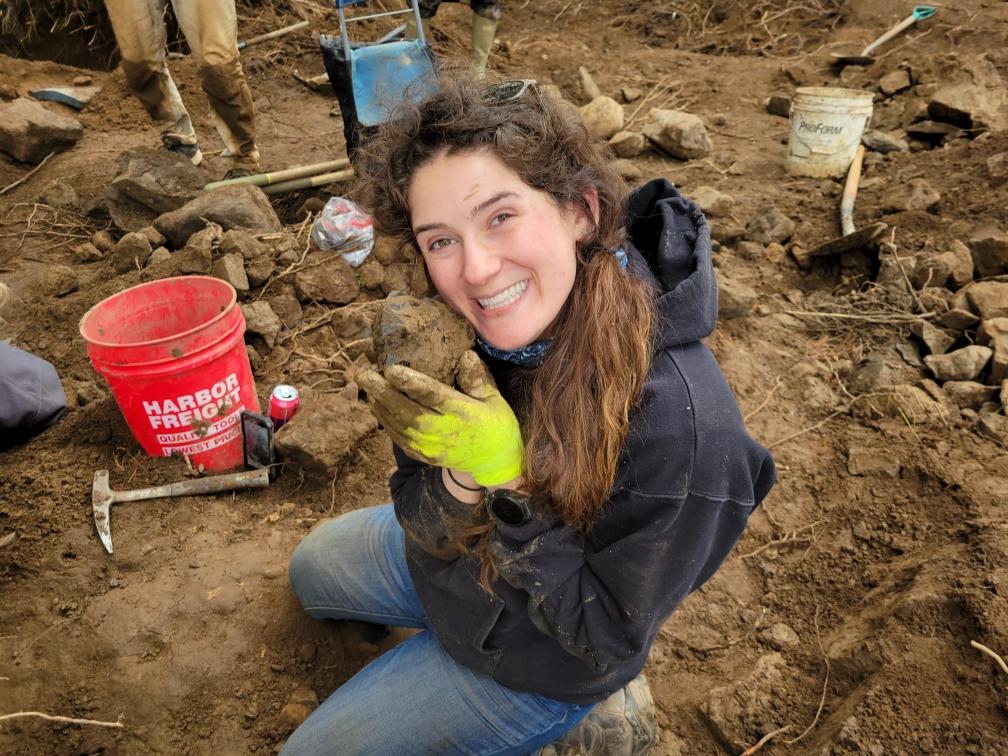
Why did you choose Stockton?
The cost and proximity to home
What about the degree program made it unique?
Everything. I don’t think there’s any other major at Stockton (or any school) that
even comes close to the experience you’ll get as a geology major. It is truly one
of the most captivating and enjoyable subjects to learn about.
How did Stockton prepare you for the next chapter in your life? (Example: research,
symposiums, etc.). Can you talk about your research experience?
I was able to take part in several independent research projects where I worked directly
with my advisor on unique geologic exposures. I was then able to present that research
at conferences, such as the Geological Society of America Northeast Section Annual
meeting. Having this research experience (both in the lab and in the field) prepared
me for my next step (grad school) as well as my past and current occupations. I was
fortunate to also have the opportunity to be a teaching assistant as an undergrad,
which taught me invaluable presentation skills.
Can you talk about your career path since graduating from Stockton? (If you are in the workforce, can you describe your overall duties/responsibilities
in your current position?)
After graduating from Stockton, I immediately went on to a fully funded graduate school
program at Lehigh University, where I earned an M.S. in Earth and Environmental Sciences.
The findings from my research were published in 2018 in GeoSphere. After graduating,
I joined the workforce as an environmental geologist for a private environmental consulting
firm in New Jersey, where I assisted in researching, identifying, and remediating
environmentally compromised sites in the Tri-State area. I was simultaneously hired
by Monmouth University to teach an introductory geology course part-time at night.
After straddling this dual role in private industry and academia for five years, I
accepted my current position with the Depart of Labor’s Mine Safety and Health Administration
as a Mine Safety and Health Training Specialist. In this role, I provide educational
and training services to mine and quarry operators throughout the Northeastern United
States and take part in accident investigations.
Can you talk about your educational path since graduating from Stockton? (If you went
on to graduate studies, where did you go? What degree are you pursuing? Did any research,
symposiums, extra-curricular activities help with your studies/preparing for graduate/professional
school?)
I went to Lehigh University (‘17) and earned an M.S. degree in Earth and Environmental
Sciences. My research and extra-curricular activities at Stockton made my resume stand
out as an exceptional student.
What advice would you give to students who are considering majoring in your field?
A large portion of geology will be spent studying rocks and landforms to understand
the past. But - as you’ll quickly learn - the present is the key to the past. Take
advantage of every learning opportunity presented to you during your studies and capitalize
on the wealth of knowledge your professors have to offer. Just because you don’t immediately
see the benefit of an opportunity does not mean it’s a valueless moment.
Anything else you would like to share with us (personal or professional)?
I often look back on my life to see if there were key moments or choices that had
a lasting impact on me. Choosing to major in geology at Stockton has single-handedly
been the best choice I have ever made in my entire life. I cannot imagine where I
would be if I hadn’t taken the chance to switch majors.
Shannon Ahern '21
B.S. Geology
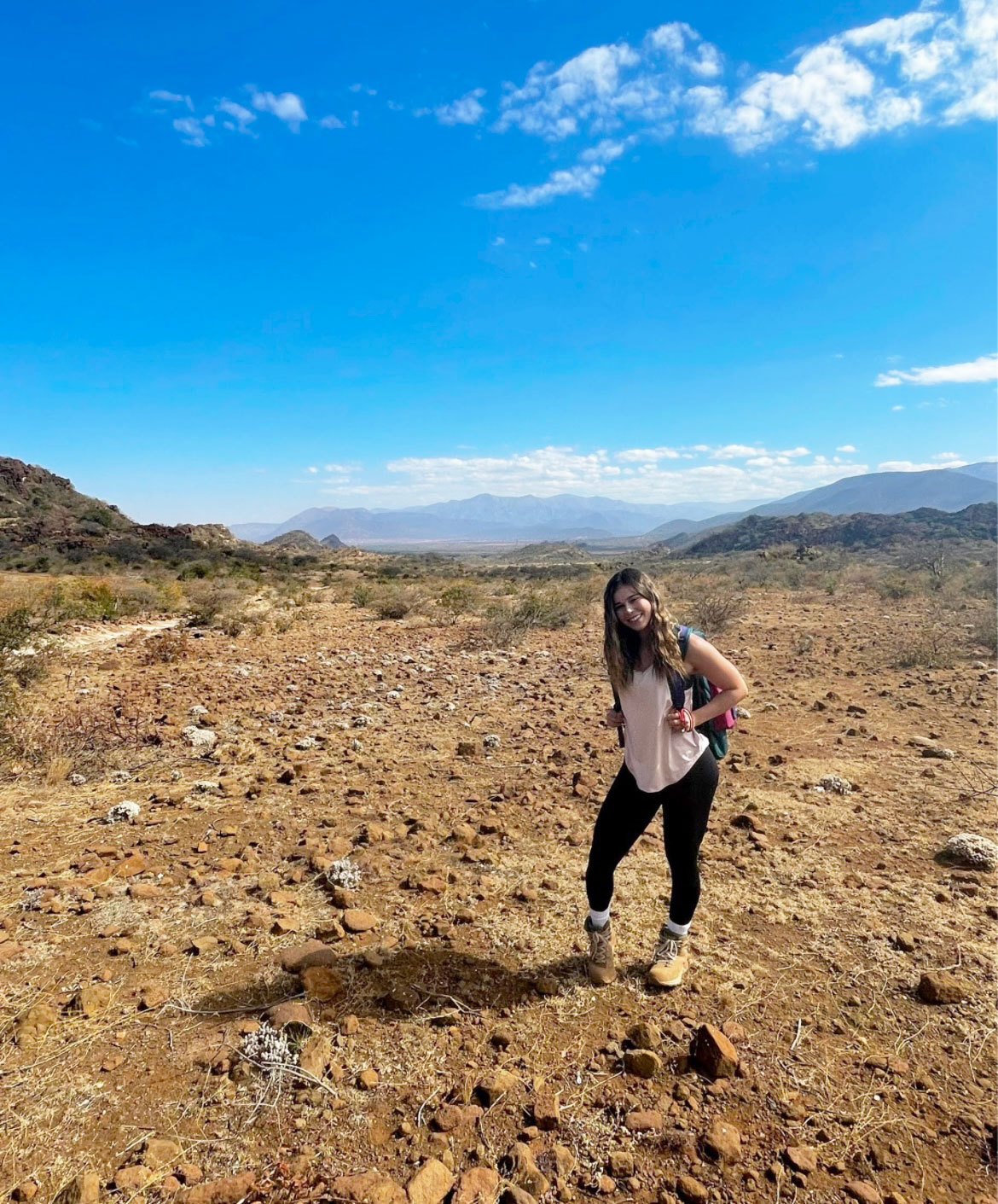
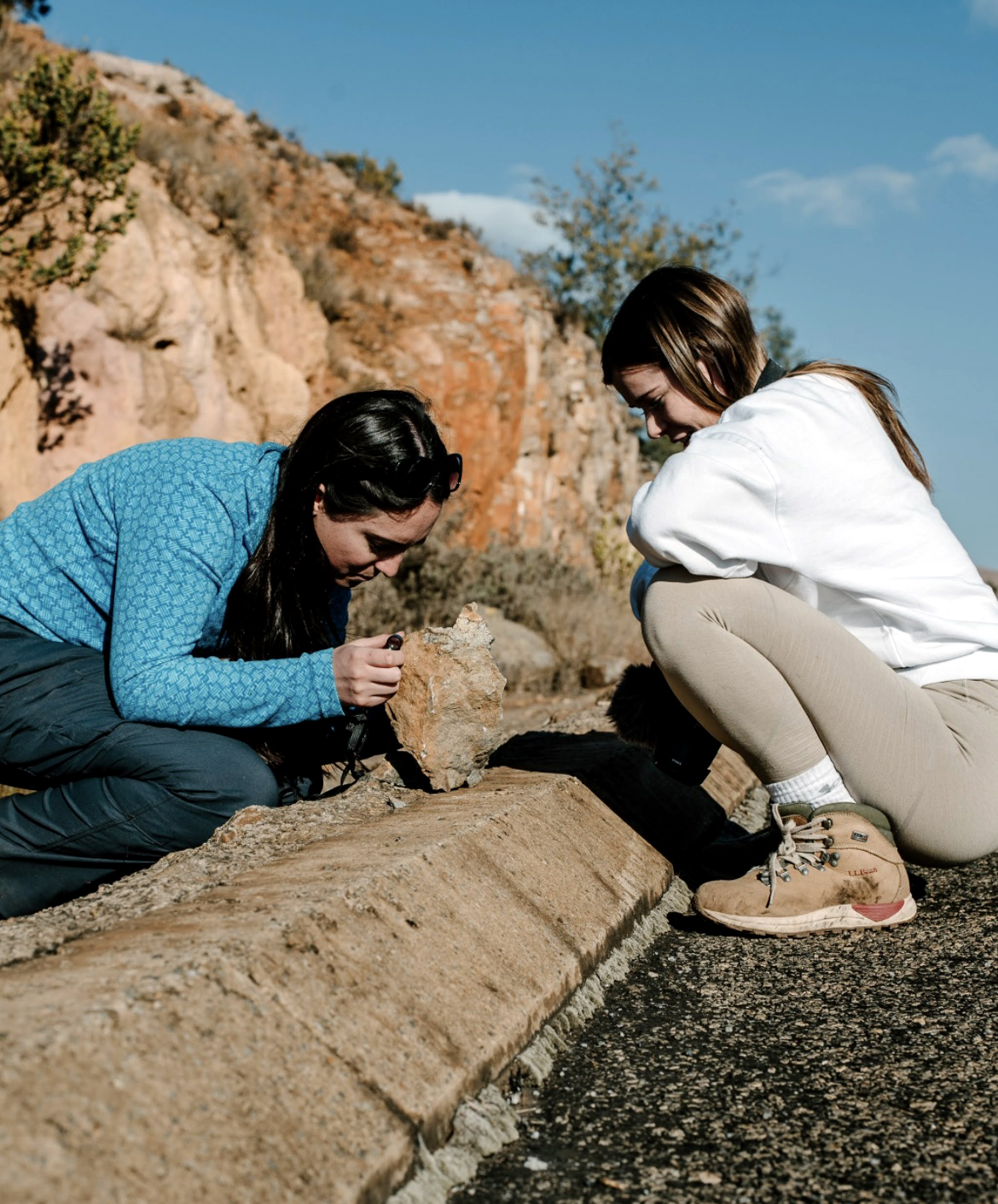
Why did you choose Stockton?
Great geology program.
What about the degree program made it unique?
The immersive experience that being a geology student provided was irreplaceable.
I was able to go on many field trips and participate in research that prepared me
very well for graduate school.
How did Stockton prepare you for the next chapter in your life? (Example: research,
symposiums, etc.). Can you talk about your research experience?
Rocky provided me with an incredible introduction to research and analytical techniques
that I use on a daily basis as a graduate student. I was able to gain experience in
petrographic analysis and magma modeling. I was also introduced to GIS and mapping
techniques.
Can you talk about your career path since graduating from Stockton? (If you are in the workforce, can you describe your overall duties/responsibilities
in your current position?)
Since graduating from Stockton, I have continued my education as an M.S. student at
Texas Tech University. I am doing research on magnetite pipes in the Bushveld Complex
of South Africa. I was also able to do fieldwork in South Africa during the summer
of 2021.
Can you talk about your educational path since graduating from Stockton? (If you went
on to graduate studies, where did you go? What degree are you pursuing? Did any research,
symposiums, extra-curricular activities help with your studies/preparing for graduate/professional
school?)
I am pursuing a graduate degree in Geosciences with a focus in igneous petrology at
Texas Tech University.
What advice would you give to students who are considering majoring in your field?
I would tell them that it is one of the most useful degrees that one could get at
Stockton. The job prospects are vast, and the research/field experiences will be some
of the best times of your life.
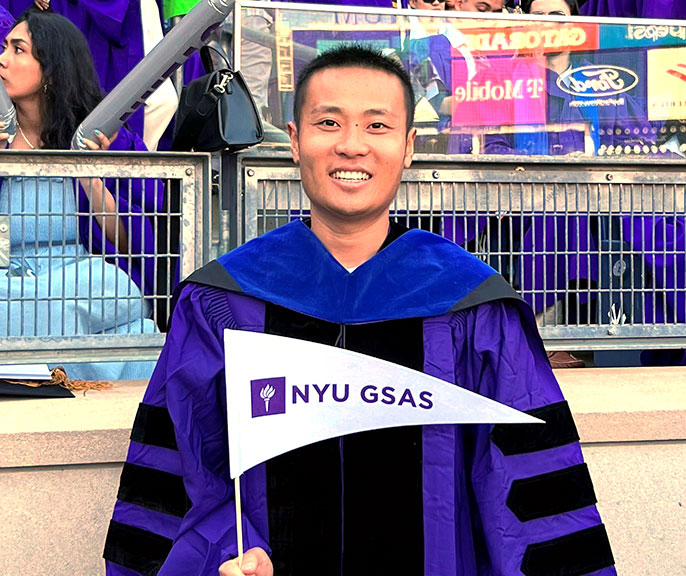
Guolong Zhu '12
B.S. Physics
What about the degree program made it unique?
The Physics Program at Stockton offers very advanced courses, combined with the excellent
math courses, it prepares a student well equipped for a Ph.D. program.
How did Stockton prepare you for the next chapter in your life? (Example: research,
symposiums, etc). Can you talk about your research experience?
Excellent undergraduate teaching prepared me with a solid knowledge foundation for
my future research in Biophysics and Chemical Engineering.
Can you talk about your career path since graduating from Stockton? (If you are in the workforce, can you describe your overall duties/responsibilities
in your current position?)
Ph.D. at NYU (2012-2019), Postdoctoral Research Scientist at Columbia University (2019-2022),
Assistant Professor of Physics (Tenure Track) at Fairleigh Dickinson University (2022-present).
What advice would you give to students who are considering majoring in your field?
Keep doing it until your dream realizes. As your academic life goes on, you would
see more and more people around you leave Physics, like quitting their Ph.D., changing
majors to C.S., finding a quant job on Wall Street or a coding job in Silicon Valley.
They have their choices best for them. But for me, and maybe for you who are strongly
enthusiastic in Physics and an academic career as a life goal, perseverance is important.
Don't feel bad if you feel many classmates are smarter than you. I was never the smartest
among my friends, but I just kept doing physics. When I finally did it and looked
around, I was one of the very few people still on the academic road now.
Is there anything else you would like to share with us (personal or professional)?
Whether you liked theories or experiments more in undergraduate courses and research,
do not limit your future research only to what you were familiar with in a college.
With a bachelor's degree in physics, you may want to explore many more interdisciplinary
areas, such as soft matter (a subcategory of condensed matter), biophysics, materials
science, and chemical and biochemical engineering.
Alexander Avelar '19
B.S. Geology
Why did you choose Stockton?
I was recommended by my advisor at my community college to attend Stockton University
What about the degree program made it unique?
The connection and the help I was given by professors and classmates. Having a small class helped me get more involved in the program than I would have done at an other school
How did Stockton prepare you for the next chapter in your life? (Example: research, symposiums, etc.). Can you talk about your research experience?
Doing research as an undergrad and going to conferences like GSA opened a lot of doors for me.
Can you talk about your career path since graduating from Stockton? (If you are in the workforce, can you describe your overall duties/responsibilities in your current position?)
After graduation, I worked for two years in a soils consultant company in Virginia as a Geologist and GIS analyst. I currently work in a geotechnical firm as a field geologist. Soon I will start as a full-time graduate student doing research in near surface geophysics at Rutgers University.
Can you talk about your educational path since graduating from Stockton? (If you went on to graduate studies, where did you go? What degree are you pursuing? Did any research, symposiums, extra-curricular activities help with your studies/preparing for graduate/professional school?)
Starting graduate school for M.S. in geophysics during the spring of 2023.
What advice would you give to students who are considering majoring in your field?
Do their research on what field of geology they would like to work in the future. The field of geology is very broad and sometimes competitive for obtaining good jobs. Most of the time, it requires to pursuing a master's degree.
Anything else you would like to share with us (personal or professional)?
When I was at Stockton, I would have liked more tools provided by NAMS. For example, easy access to rooms to study with classmates in classrooms.



